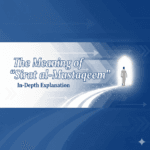Starting With The Name Of Almighty Allah
In a world filled with ancient texts and sacred scriptures, few hold the profound influence of the Quran. For over a billion Muslims worldwide, it’s more than a book—it’s a divine guide shaping daily life, ethics, and spirituality. But questions like “who wrote the Quran” or “when was the Quran written” often spark curiosity, especially among those exploring Islam for the first time. This blog dives deep into these inquiries, blending traditional Islamic beliefs with historical insights to provide a balanced view. We’ll uncover the Quran’s origins, its revelation process, and the human hands involved in preserving it, all while addressing common misconceptions such as “if Muhammad (P.B.U.H) was not literate, who wrote the Quran?” or “Who actually wrote the Quran?”
Whether you’re a seeker of knowledge or someone deepening your faith, understanding the Quran’s authorship and timeline reveals its timeless relevance. Let’s embark on this journey, acknowledging both the faith-based perspective that sees it as God’s unaltered word and the academic lens that examines its historical compilation.
What is the Quran?
At its core, the Quran stands as the central religious text of Islam, believed by Muslims to be the literal word of God revealed to the Prophet Muhammad (P.B.U.H) over 23 years. Unlike other holy books compiled by human authors, the Quran is viewed in Islamic tradition as a direct divine message, covering guidance on worship, morality, law, and stories of past prophets. It consists of 114 chapters, or Surahs, varying in length and theme, from poetic verses on creation to practical rules for society.
The Quran’s language is classical Arabic, renowned for its eloquence and rhythm, which has inspired countless scholars and poets. For those wondering “what is the Quran,” it’s not just a historical artifact but a living document recited in prayers, memorized by millions, and studied for personal growth. If you’re interested in exploring its depths further, check out our detailed post on [What is the Holy Quran?], which breaks down its structure and significance in everyday Muslim life.
“And We have sent down to you the Book explaining all things, a guide, a mercy, and glad tidings to Muslims.”
(Quran 16:89)
This verse highlights the Quran’s role as a comprehensive source of wisdom, emphasizing its divine origin and purpose.
The Islamic Perspective: Divine Authorship of the Quran
From the traditional Islamic viewpoint, the question “who wrote the Quran” has a straightforward answer: no human authored it. Muslims believe it is the verbatim word of Allah (God), revealed through the Angel Gabriel to Prophet Muhammad (P.B.U.H). This belief stems from the Quran itself, which repeatedly affirms its divine source, free from human invention or alteration.
The process began in 610 CE in a cave on Mount Hira near Mecca, where Muhammad (P.B.U.H) received the first revelation. Over the next two decades, verses came in response to events, questions from followers, or to provide eternal guidance. This revelation wasn’t a one-time event but gradual, allowing the early Muslim community to absorb and implement its teachings.
“We have sent it down as an Arabic Qur’an so that you may understand.”
(Quran 12:2)
Here, the Quran describes itself as “sent down,” underscoring its heavenly origin rather than earthly composition.
A Hadith narrated by Aisha (R.A.), the Prophet’s wife, in Sahih Bukhari (Volume 1, Book 1, Hadith 3) states:
“The commencement of the Divine Inspiration to Allah’s Messenger was in the form of good dreams which came true like bright daylight, and then the love of seclusion was bestowed upon him.”
This tradition illustrates the Prophet’s preparation for revelation, reinforcing the Islamic narrative of divine intervention.
Addressing the Literacy of Prophet Muhammad (P.B.U.H)
One common query is “if Muhammad (P.B.U.H) was not literate who wrote the Quran.” Islamic sources confirm that the Prophet was unlettered, known as Ummi, which adds to the miracle of the Quran’s eloquence. He didn’t read or write, yet he conveyed a text of unparalleled literary beauty, challenging the poets of his time.
According to tradition, the Prophet dictated revelations to scribes among his companions, who recorded them meticulously. This oral transmission, combined with written records, ensured accuracy. The Quran itself addresses this:
“He who obeys the Messenger has obeyed Allah.”
(Quran 4:80)
It positions Muhammad (P.B.U.H) as the conduit, not the creator.
For those eager to delve into proper recitation and understanding, our blog “How to Learn Quran with Tajweed at Home” offers practical tips on mastering the Quran’s pronunciation, even from your living room.
When Was the Quran Revealed?
Pinpointing “when was the Quran written” ties directly to its revelation period, spanning from 610 CE to 632 CE, the year of the Prophet’s passing. The first verses came during Ramadan in 610 CE, with Surah Al-Alaq: “Read in the name of your Lord who created.” (Quran 96:1)
Revelations occurred in phases: Meccan Surahs (610-622 CE) focus on faith, monotheism, and stories of prophets, while Medinan Surahs (622-632 CE) address community building, laws, and social issues. This timeline aligns with the Prophet’s migration from Mecca to Medina in 622 CE, known as the Hijrah.
By the time of Muhammad’s (P.B.U.H) death, the entire Quran was revealed, though not yet compiled into a single book. Written fragments existed on materials like palm leaves, bones, and leather, alongside memorization by Huffaz (memorizers).
A Hadith in Sahih Muslim (Book 8, Hadith 3421) recounts:
“The Prophet (P.B.U.H) used to revise the Quran with Jibril (Gabriel) once every year, and twice in the year he died.”
This annual review ensured the text’s integrity during revelation.
The Role of Scribes: Who Actually Wrote the Quran Down?
While divine in origin, the physical recording involved trusted companions of the Prophet, answering “Who used to write the Quran in actual?” These scribes, including Zaid ibn Thabit, Ali ibn Abi Talib, and Ubayy ibn Ka’b, transcribed verses as dictated by Muhammad (P.B.U.H). They worked under his supervision, verifying accuracy.
Zaid, for instance, was a young scholar fluent in Arabic and Syriac, making him ideal for the task. The process was communal; revelations were shared in mosques, memorized, and written to prevent loss.
For a closer look at these key figures, our blog on [Companions of the Holy Prophet (PBUH) Who Wrote the Quran] profiles their contributions and dedication.
“It is We Who have sent down the Quran and indeed, We will be its guardian.”
(Quran 15:9)
This promise of preservation highlights Allah’s role in safeguarding the text through human efforts.
The Compilation Process: From Revelation to Book
After the Prophet’s death, the need for a unified text arose. Under Caliph Abu Bakr (632-634 CE), Zaid ibn Thabit compiled the Quran into a single manuscript, drawing from written materials and memorizers. This Mushaf was kept with Abu Bakr, then Umar, and later Hafsa (R.A.).
Standardization occurred under Caliph Uthman (644-656 CE), who commissioned copies to resolve dialect variations, sending them to major cities. This Uthmanic recension forms the basis of today’s Quran, unchanged for centuries.
Our in-depth piece on [How the Quran Got Compiled and Published?] explores this step-by-step, including challenges faced by early Muslims.
A Hadith in Sahih Bukhari (Volume 6, Book 61, Hadith 510) narrates: “Hudhaifa bin Al-Yaman came to Uthman at the time when the people of Sham and the people of Iraq were waging war to conquer Arminya and Adharbijan. Hudhaifa was afraid of their (the people of Sham and Iraq) differences in the recitation of the Qur’an, so he said to ‘Uthman, ‘O chief of the Believers! Save this nation before they differ about the Book (Qur’an) as Jews and the Christians did before.’ So ‘Uthman sent a message to Hafsa saying, ‘Send us the manuscripts of the Qur’an so that we may compile the Qur’anic materials in perfect copies and return the manuscripts to you.’ Hafsa sent it to ‘Uthman. ‘Uthman then ordered Zaid bin Thabit, ‘Abdullah bin Az-Zubair, Said bin Al-As, and ‘AbdurRahman bin Harith bin Hisham to rewrite the manuscripts in perfect copies.”
This account details the meticulous compilation, ensuring uniformity.
Historical and Academic Perspectives
While Islamic tradition holds the Quran as divinely revealed and perfectly preserved, some historical and academic approaches offer alternative views. Scholars like those in Western academia sometimes suggest influences from Jewish and Christian texts, or propose later redactions based on manuscript evidence like the Sana’a palimpsest.
These perspectives often examine the Quran through linguistic analysis or archaeology, questioning the timeline of compilation. For instance, some argue parts were written post-Prophet, drawing from oral traditions in the Arabian Peninsula. However, many experts, including non-Muslim historians like Fred Donner, acknowledge the text’s early coherence and the strength of oral transmission in pre-Islamic Arabia.
It’s essential to note that these views don’t negate the faith-based belief but provide a scholarly counterpoint. Muslims counter with the Quran’s internal consistency and the absence of contradictions, viewing it as proof of divine authorship.
“Indeed, it is a noble Quran in a Register well-protected; none touch it except the purified.”
(Quran 56:77-79)
This verse speaks to the Quran’s sanctity, resonating in both spiritual and analytical discussions. Understanding how the Quran was carefully preserved through memorization and written records helps deepen appreciation for its authenticity. Through Online Quran Learning, students can explore these historical details while also strengthening their connection with the Quran in a structured and engaging way.
The Miracle of Preservation and Its Relevance Today
The Quran’s journey from oral revelation to a standardized book exemplifies remarkable preservation. Unlike many ancient texts altered over time, carbon-dated manuscripts like the Birmingham Quran (dated to 568-645 CE) match modern editions word-for-word.
This authenticity builds trust, making the Quran a reliable source for guidance. In today’s digital age, learning has never been easier. For personalized instruction, consider enrolling in “Online Classes of Quran” to connect with expert tutors from anywhere.
Memorization remains a pillar; millions become Hafiz, echoing the early companions’ efforts.
A Hadith in Sunan Abi Dawud (Book 3, Hadith 1464) says:
“The Prophet (P.B.U.H) said: ‘The best amongst you is the one who learns the Quran and teaches it.'”
This encourages ongoing engagement with the text.
Common Misconceptions and Clarifications
Misunderstandings abound, such as claims that the Quran was authored by Muhammad (P.B.U.H) or his companions for political gain. Islamic responses point to its linguistic miracles—challenges to produce a similar Surah went unmet—and prophecies fulfilled centuries later.
The query, “Who has written the Quran,” often confuses revelation with transcription. The divine “author” is Allah, with humans as preservers.
For those in United States seeking structured learning, “Online Quran Classes In USA” provides culturally attuned sessions.
The Quran also addresses doubters:
“And if you are in doubt about what We have sent down upon Our Servant [Muhammad], then produce a surah the like thereof and call upon your witnesses other than Allah, if you should be truthful.”
(Quran 2:23)
This challenge stands as a testament to its uniqueness.
Why Understanding the Quran’s Origins Matters
Grasping who wrote the Quran and when fosters deeper appreciation. It bridges faith and history, showing how a 7th-century revelation addresses modern issues like justice and environmental stewardship.
For beginners, starting with basics is key. “Quran Classes Online” offer flexible schedules, helping you build a strong foundation.
In educational settings, the Quran’s timeline teaches resilience; early Muslims preserved it amid persecution.
Continuing the Legacy Through Education
Today, the Quran’s message thrives through study and application. Whether reciting in prayer or analyzing its ethics, engagement keeps it alive.
Programs like “Online Quran Classes” make this accessible, with live sessions for all ages.
As we reflect on its divine origins and human stewardship, remember: the Quran invites exploration.
In closing, if you’re passionate about authentic Quranic education, turn to Najam Academy, a leading Online Quran Academy in the USA and UK. With experienced tutors, interactive courses, and a focus on Tajweed and Tafsir, Najam Academy empowers students worldwide to connect deeply with the Quran. Whether you’re a beginner or advancing your knowledge, our tailored programs build confidence and faith. Join today and experience the difference.
About the Author:
As a certified Quran Teacher with over 11 years of experience at Najam Academy, I’ve helped countless students deepen their understanding of Islamic teachings. Through engaging, well-researched content, I bridge faith and history to inspire a global audience.
Muhammad Qasim




